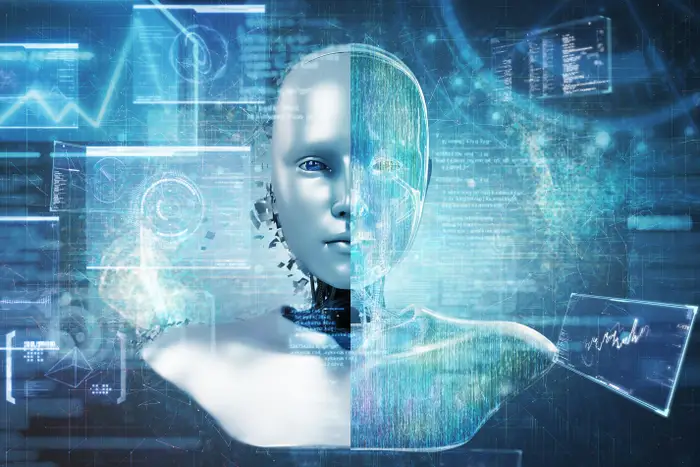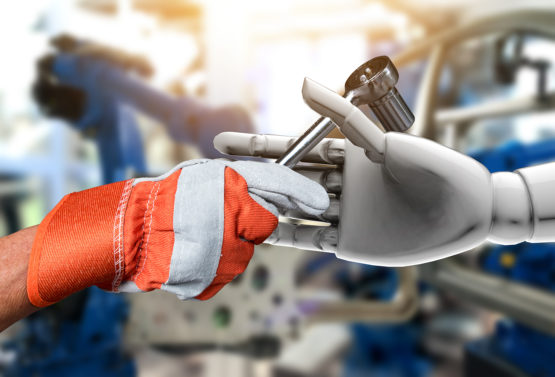Future of AI, Ethics – Unveiling the Enigmatic: A Heartfelt Journey of Empowerment Through Uncharted Territories
Future of AI, Ethics
- Introduction to the Future of AI
- The Rise of Machine Learning in AI
- AI in Healthcare: Analyzing Medical Data and Personalized Treatment Plans
- AI in Transportation: Self-Driving Cars and Improved Efficiency
- AI in the Workplace: Chatbots and Virtual Assistants
- The Impact of AI on the Workforce and the Importance of Education and Training
- Ensuring Equitable Distribution of AI Benefits
- Ethical Considerations in AI Development and Implementation
- The Importance of Ethical Frameworks and Guidelines for AI
- Conclusion: The Exciting Future of AI with Caution and Vigilance.

Introduction to the Future of AI
Future of AI, Ethics – Artificial intelligence (AI) has the potential to revolutionize the way we live and work. Machine learning, a subset of AI, is becoming increasingly sophisticated, which allows for faster and more accurate predictions and decisions. The future of AI, ethics, and its potential impact on society cannot be ignored. It has the potential to transform every industry, from healthcare to transportation and the workplace. As AI continues to evolve, it will be crucial to ensure that its development and implementation are done in a way that is ethical and beneficial to society. The concerns surrounding the impact of AI on the workforce and the potential for job loss must also be addressed.
The Rise of Machine Learning in AI
One of the most significant developments in AI is the rise of machine learning. Machine learning involves training algorithms to learn from data and make decisions without being explicitly programmed. This technology has been used to develop applications such as speech recognition, image recognition, and natural language processing. In the future, we can expect machine learning to become even more sophisticated, allowing AI to learn and adapt to new situations more quickly and accurately.

AI in Healthcare: Analyzing Medical Data and Personalized Treatment Plans
In healthcare, AI-powered tools can analyze vast amounts of medical data, helping doctors and researchers to identify new treatments and therapies. AI can also be used to diagnose diseases and predict patient outcomes, allowing doctors to provide more personalized treatment plans for their patients. The use of AI in healthcare is already impacting patient outcomes and has the potential to improve the quality of care for patients worldwide.
AI in Transportation: Self-Driving Cars and Improved Efficiency
In transportation, self-driving cars powered by AI are already being developed and tested. In the future, we can expect to see more and more autonomous vehicles on the roads, reducing the number of accidents caused by human error and improving the efficiency of transportation systems. The use of AI in transportation has the potential to revolutionize how we move around and commute in our daily lives.

AI in the Workplace: Chatbots and Virtual Assistants
In the workplace, AI-powered tools like chatbots and virtual assistantsare becoming more prevalent, helping workers be more productive and efficient. AI is also being used to automate routine tasks, freeing up time for workers to focus on more complex and creative tasks. It is essential to ensure that the use of AI in the workplace is ethical and beneficial to workers and society.
The Impact of AI on the Workforce and the Importance of Education and Training
As AI becomes more prevalent, workers will need to develop new skills to stay competitive in the job market. It is important to invest in education and training programs that help workers develop the skills needed to work alongside AI-powered tools. The impact of AI on the workforce cannot be ignored, and it is essential to ensure that the adoption of AI is done in a way that is ethical and beneficial to workers.

Ensuring Equitable Distribution of AI Benefits
There are also concerns about the potential loss of jobs as more tasks become automated. It will be essential to ensure that workers are not left behind and that the benefits of AI are distributed equitably. Governments and businesses must work together to ensure that the adoption of AI is done in a way that benefits society as a whole.
Ethical Considerations in AI Development and Implementation
Ethical considerations are crucial when it comes to the development and implementation of AI. As AI becomes more powerful, it is essential to ensure that it is used in a way that is ethical and beneficial to society. Concerns have been raised about the potential for AI to be used in ways that are harmful to society, such as facial recognition technology being used for surveillance.

The Importance of Ethical Frameworks and Guidelines for AI
The ethical implications of AI must be considered at every stage of its development, from the design of algorithms to the implementation of AI-powered tools. It is essential to ensure that AI is used in a way that is fair, transparent, and accountable. The adoption of ethical frameworks and guidelines for the development and implementation of AI is crucial.
Conclusion: The Exciting Future of AI with Caution and Vigilance.
In conclusion, the future of AI is exciting and has the potential to transform every industry. However, it is essential to approach AI with caution and ensure that it is used in a way that is ethical and beneficial to society. The impact of AI on the workforce cannot be ignored, and it is crucial to ensure that workers are not left behind. As AI continues to evolve, it will be crucial to remain vigilant and ensure that its impact on society is positive and visionary.

